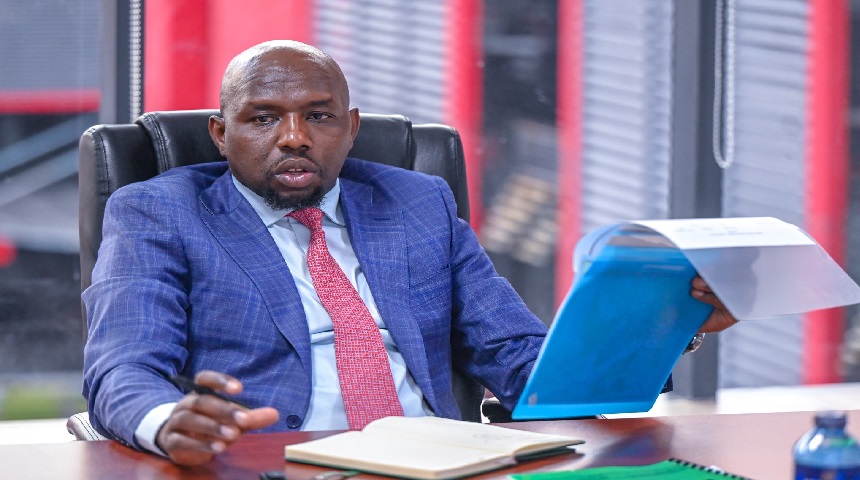On Tuesday, the committee met with Cabinet Secretary for Roads and Transport, Kipchumba Murkomen, who supported the proposal to increase the Fuel Levy charge from Ksh. 18 to Ksh. 25 per litre.
The proposed hike represents a 38 percent increase in the levy, which will directly impact the cost of fuel. This change has sparked significant debate among stakeholders and the public.
During the discussions, CS Murkomen advocated for the increase, citing the need for additional revenue to address the backlog in road maintenance.
He highlighted the potential benefits for e-mobility and improvements in the size and quality of the road network.The National Assembly Departmental Committee on Finance and National Planning has entered the next phase of deliberations on the Finance Bill 2024, engaging with government agencies regarding the bill's proposals. Before retreating to finalize their proposals, committee members have expressed concerns about the effective use of the allocated budget and issues of public trust. The committee's findings and report will be instrumental in shaping the final version of the Finance Bill 2024.
Did you read this?
The committee, having concluded its public participation phase on Monday, dedicated extensive hours to listening to concerns from various stakeholders and members of the public during a two-week-long exercise.
However, committee members remained skeptical. They emphasized the importance of proving that the allocated budget is being used effectively.
The committee chair, Kimani Kuria, emphasized the public's trust issues, stating, “Hon. CS, the challenge that this Committee has identified from the stakeholders is that there is a trust deficit and Kenyans are asking how their money is being used out there.”
During their engagement with Environment and Climate Change PS Festus Ng’eno, the MPs questioned the proposed Eco-Levy and its potential impact on the manufacturing sector.
PS Ng’eno defended the Eco-Levy, emphasizing its importance in addressing the proliferation of problematic waste streams over recent decades.
He referenced successful implementations of similar levies in countries like Barbados, Germany, Estonia, Ireland, Jamaica, Guyana, Ghana, and the Bahamas as models to support the initiative.
"The revenue generated from the levy is earmarked for such initiatives as putting up enhanced waste management systems, creating public awareness and education through nationwide campaigns, to support innovation and enhanced research and development in green technologies,” he explained. .
He further emphasised that the funds would support community-based environmental programs aimed at waste reduction, tree planting, and the restoration of degraded ecosystems.
However, Committee Members David Mboni (Kitui Rural MP), Julius Rutto (Kesses MP), and Joseph Munyoro (Kigumo MP) expressed concerns about the management and allocation of the levy funds.
They questioned how the funds would be ring-fenced to ensure they are used specifically for the intended environmental initiatives.
“When this levy is collected alongside other revenue, how will you determine what goes to the initiatives you have highlighted if it is not ring-fenced?” posed Hon. Mboni.
The legislators emphasised the need for clear mechanisms to ensure timely disbursement of funds to avoid delays that could jeopardise the envisaged environmental projects.
As the Finance Bill 2024 progresses, the government will need to address these concerns to gain public trust and ensure the proposed measures are in the country's best interest.
The committee's findings and report will be pivotal in shaping the ultimate version of the Finance Bill 2024.
Now that public participation has wrapped up, attention will turn to fine-tuning the proposals and addressing the feedback provided.
It remains uncertain how the government will reconcile the necessity for higher revenue with the call for transparency and efficient use of public funds.









